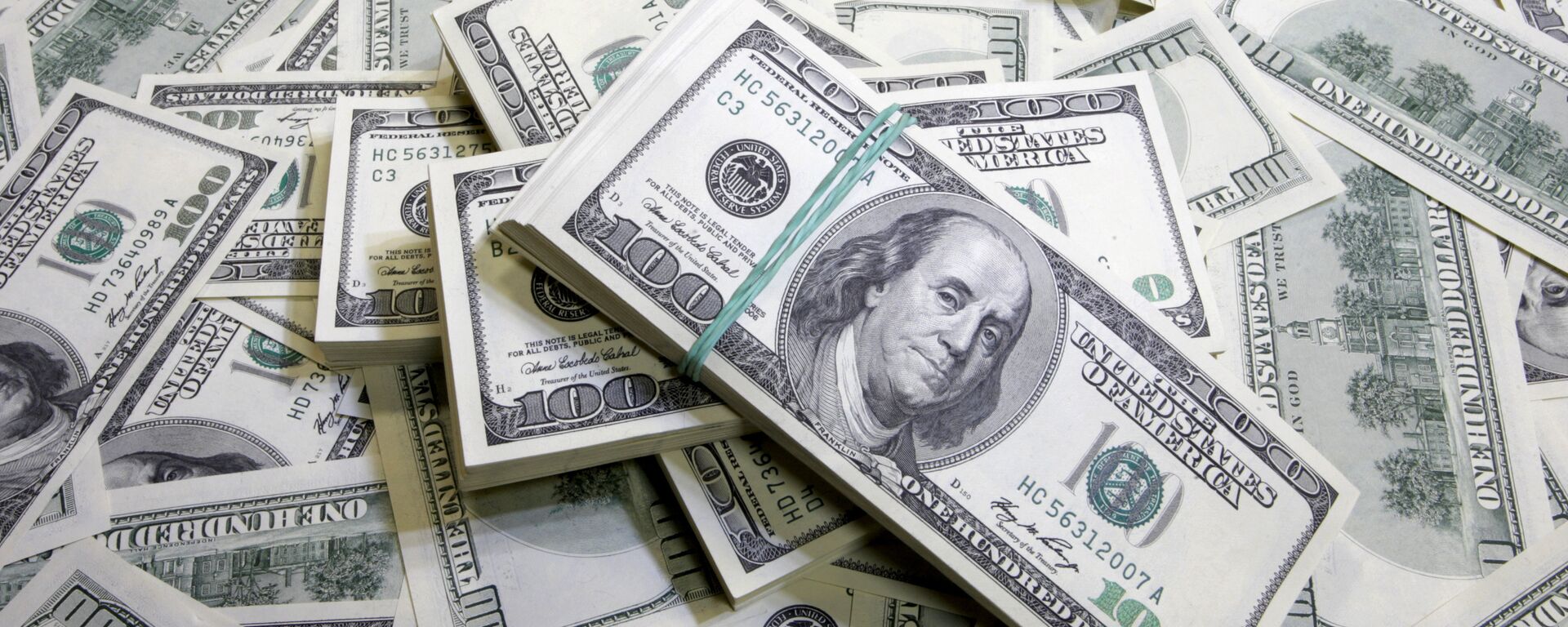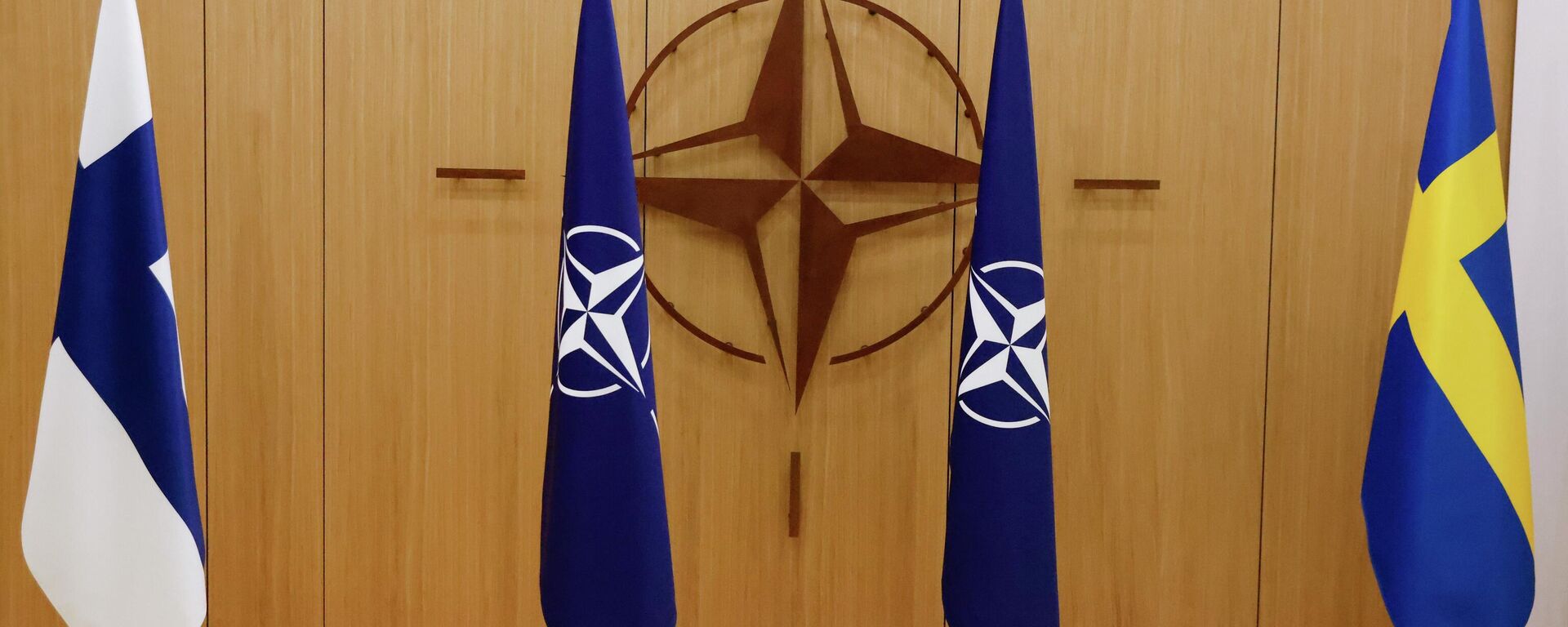https://sputnikglobe.com/20230703/we-need-more-money-nato-leaders-say-spending-must-increase-even-after-ukraine-conflict-1111644981.html
‘We Need More Money’: NATO Leaders Say Spending Must Increase Even After Ukraine Conflict
‘We Need More Money’: NATO Leaders Say Spending Must Increase Even After Ukraine Conflict
Sputnik International
As NATO prepares for its summit in Lithuania later this month, the alliance’s leaders are making a new push for reorganization, upgrades, and even more spending, to continue long after the present conflict in Ukraine is over.
2023-07-03T19:37+0000
2023-07-03T19:37+0000
2023-07-03T19:37+0000
world
jens stoltenberg
nato
military spending
ukraine
https://cdn1.img.sputnikglobe.com/img/105043/31/1050433126_0:0:3841:2162_1920x0_80_0_0_f1d84689218068b8451f0c5670822522.jpg
Speaking to reporters on Monday, Royal Netherlands Navy Adm. Rob Bauer, the chair of NATO’s military committee, said the alliance needs a big boost in spending to prepare for some later confrontation with Russia.Indicating he believes Russia “will learn lessons” from its special operation in Ukraine, he said that Brussels “will continue to look at them as a serious threat,” including in the theaters of land, air sea, and space, where Russian forces “are still very, very capable,” as well as its formidable nuclear weapons capabilities.The NATO official said that in the Lithuanian capital next week, the 31-member alliance will approve new regional military plans that include a high-readiness stance, and discuss how to increase military spending by its members.“We have to go and do our work - to reach the higher number of forces with a higher readiness, we need to exercise against the plans, we need to buy the capabilities that we require,” he said, “and that will take time.”Several NATO members have already made big increases or plans for increases since the special military operation began in February 2022, and NATO rushed to funnel weapons and funding to Kiev in what has since become largely a proxy war against Russia. In January, French President Emmanuel Macron unveiled a plan to “reform and transform” the French military with a 40% increase in spending in the 2025-2030 period.On Monday, German Defense Minister Boris Pistorius revealed Berlin would aim to hit its pledge of spending 2% of its gross domestic product (GDP) next year with a €51.8 billion military budget.NATO Secretary-General Jens Stoltenberg made a similar appeal to Bauer earlier this year, urging members to increase spending to reach at least 2% of their gross GDP.The military alliance is already by far the world’s largest agglomeration of military expenditure, with just one member, the United States, accounting for 39% of global military spending by itself.By comparison, Russia accounts for just 3.9% of global military expenditure, and China accounts for 13%. The two nations are third and second, respectively, in military spending after the US, according to the latest report by the Stockholm International Peace Research Institute (SIPRI).
https://sputnikglobe.com/20230702/who-are-natos-biggest-spenders-and-how-much-bang-do-they-get-for-their-bucks-1111627337.html
https://sputnikglobe.com/20230630/former-pentagon-analyst-sweden-should-reconsider-turmoil-it-would-become-part-of-in-nato-1111585447.html
ukraine
Sputnik International
feedback@sputniknews.com
+74956456601
MIA „Rossiya Segodnya“
2023
News
en_EN
Sputnik International
feedback@sputniknews.com
+74956456601
MIA „Rossiya Segodnya“
Sputnik International
feedback@sputniknews.com
+74956456601
MIA „Rossiya Segodnya“
nato; spending, bauer; ukraine; vilnius
nato; spending, bauer; ukraine; vilnius
‘We Need More Money’: NATO Leaders Say Spending Must Increase Even After Ukraine Conflict
As the North Atlantic Treaty Organization (NATO) prepares for its summit in Vilnius, Lithuania, later this month, the alliance’s leaders are making a new push for reorganization, upgrades, and even more spending, to continue long after the present conflict in Ukraine is over.
Speaking to reporters on Monday, Royal Netherlands Navy Adm. Rob Bauer, the chair of NATO’s military committee, said the alliance needs a big boost in spending to prepare for some later confrontation with Russia.
“We should never underestimate the Russians and their ability to bounce back, as they have shown in history a couple of times,” Bauer said.
Indicating he believes Russia “will learn lessons” from its special operation in Ukraine, he said that Brussels “will continue to look at them as a serious threat,” including in the theaters of land, air sea, and space, where Russian forces “are still very, very capable,” as well as its formidable nuclear weapons capabilities.
The NATO official said that in the Lithuanian capital next week, the 31-member alliance will approve new regional military plans that include a high-readiness stance, and discuss how to increase military spending by its members.
“We have to go and do our work - to reach the higher number of forces with a higher readiness, we need to exercise against the plans, we need to buy the capabilities that we require,” he said, “and that will take time.”
“We need more money, collectively, to pay for that,” Bauer said, adding that NATO’s new model for high-readiness forces will require “making sure that the nations have a mechanism in place to increase the numbers of people that are available for the armed forces.”
Several NATO members have already made big increases or plans for increases since the special military operation began in February 2022, and NATO rushed to funnel weapons and funding to Kiev in what has since become largely a proxy war against Russia. In January, French President Emmanuel Macron
unveiled a plan to “reform and transform” the French military with a 40% increase in spending in the 2025-2030 period.
On Monday, German Defense Minister Boris Pistorius revealed Berlin would aim to hit its pledge of spending 2% of its gross domestic product (GDP) next year with a €51.8 billion military budget.
NATO Secretary-General Jens Stoltenberg made a similar appeal to Bauer earlier this year, urging members to increase spending to reach at least 2% of their gross GDP.
“I think we should move from regarding the 2% as a ceiling to toward the 2% of GDP as a floor and minimum,” Stoltenberg told reporters in February, using as justification not only the “threat” posed by Russia, but also China, which is thousands of miles from any NATO member’s territory.
The military alliance is already by far the world’s largest agglomeration of military expenditure, with just one member, the United States, accounting for 39% of global military spending by itself.
By comparison, Russia accounts for just 3.9% of global military expenditure, and China accounts for 13%. The two nations are third and second, respectively, in military spending after the US,
according to the latest report by the Stockholm International Peace Research Institute (SIPRI).




